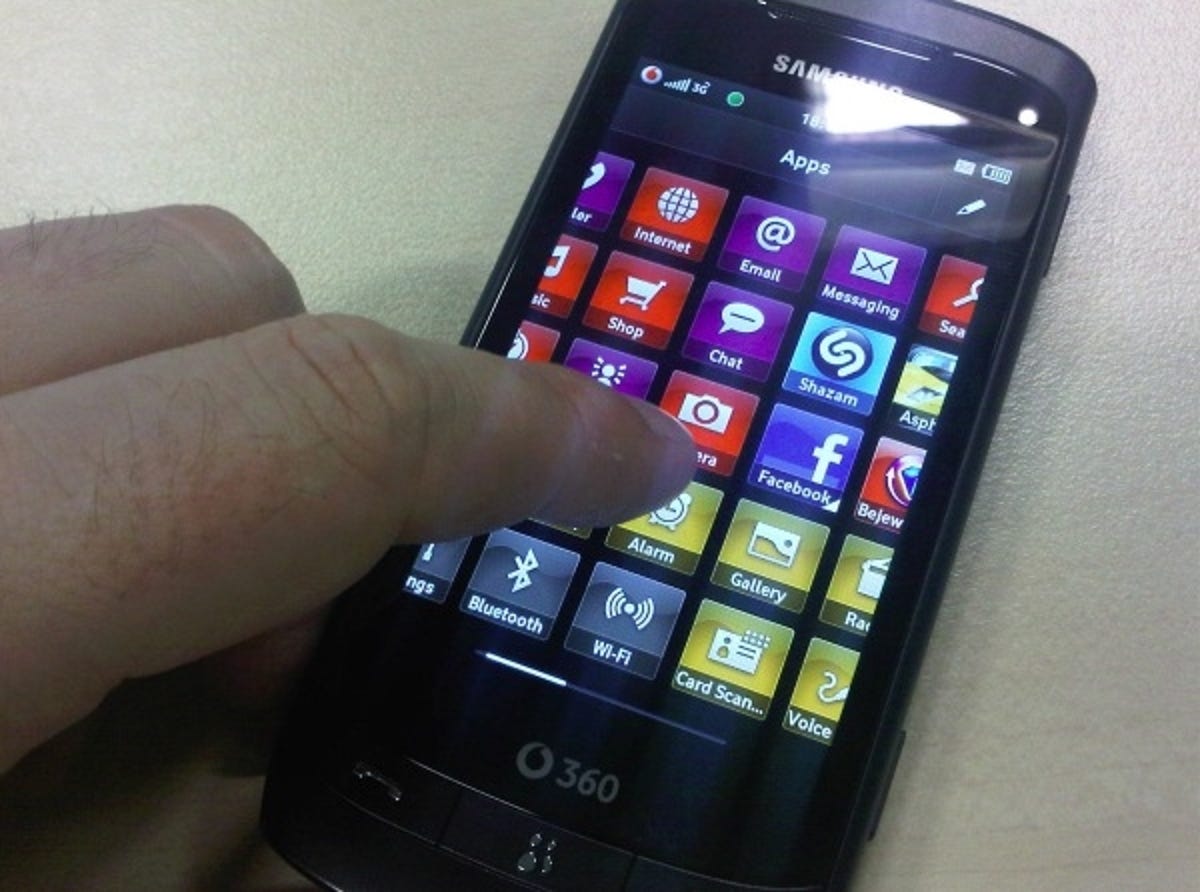
Vodafone is ditching its range of mobile phones that were specifically tailored to its Vodafone 360 service, including the successor to the Samsung H1, which was unsurprisingly named the Samsung H2.
Instead of pushing phones that are dedicated to delivering the service, Voda is going to focus on getting Vodafone 360 on to a broad range of phones. It’s a good idea, since Vodafone 360 is a social networky-type thing that offers a synced address book where you can share your photos and chat amongst other 360 users. Getting it on to more phones is the only way to up its popularity enough to make it useful, but even that may not be enough.
Vodafone 360 suffers the social network curse — your friends have to be using it to make it worthwhile. And our straw poll says that our friends aren’t using it. As a cloud-based back-up service for your contacts and photos, it could be handy, but that feature probably won’t tempt smart phone users who already get their contacts synced along with their email account or services such as MobileMe on the iPhone or Google on Android phones.
And Vodafone 360 suffers from a lack of features — for example, once you upload your photos to the service to share with your non-existent 360 buddies, you can only share it with one other photo service — Facebook. There’s also a 360 app store that’s targeted at feature phones, and a home screen where you can point your mobile Web browser to see all your favourite content in one place, similar to Yahoo Mobile. In other words, 360 is another Nokia Ovi, packed with disjointed features that sound good, but may not be exciting enough to bother getting to grips with.
Vodafone has a great network and an insanely good selection of phones. So why is it flailing around with a nebulous, difficult-to-understand online service? The fact is that if it can manage to get people interested, it can take advantage of its mobile billing and huge wodge of customers to make money from apps, and other purchases, that may otherwise go into other pockets.
But while apps are the hottest topic in mobiles, app stores other than the big ones — the Apple App Store and the Android Market — are struggling, says Forrester Research. App stores are “overhyped [and] few will survive,” said the analysis company in a report released this week.
We’re laying our dead pool bet on the Samsung app store, which this week released the top ten apps sold on its Bada platform. Bada is only used by the Samsung Wave at the moment, but it will be coming to more Samsung feature phones.
The most-downloaded app is a flashlight app that shows a picture of a variety of light bulbs on your screen. The next is the reliable Need for Speed racing game, but the third most popular is an app that shows optical illusions. In French.
Samsung didn’t provide download numbers, but they can’t be huge if a flashlight app can clamber its way to the top. By way of comparison, the Apple App Store rankings are stuffed with huge brands like BBC News, Tetris and TomTom.
Do you use Vodafone 360? Or do you just love flashlight apps? Let us know in the comments.
Photo credit: Mobile Industry Review



